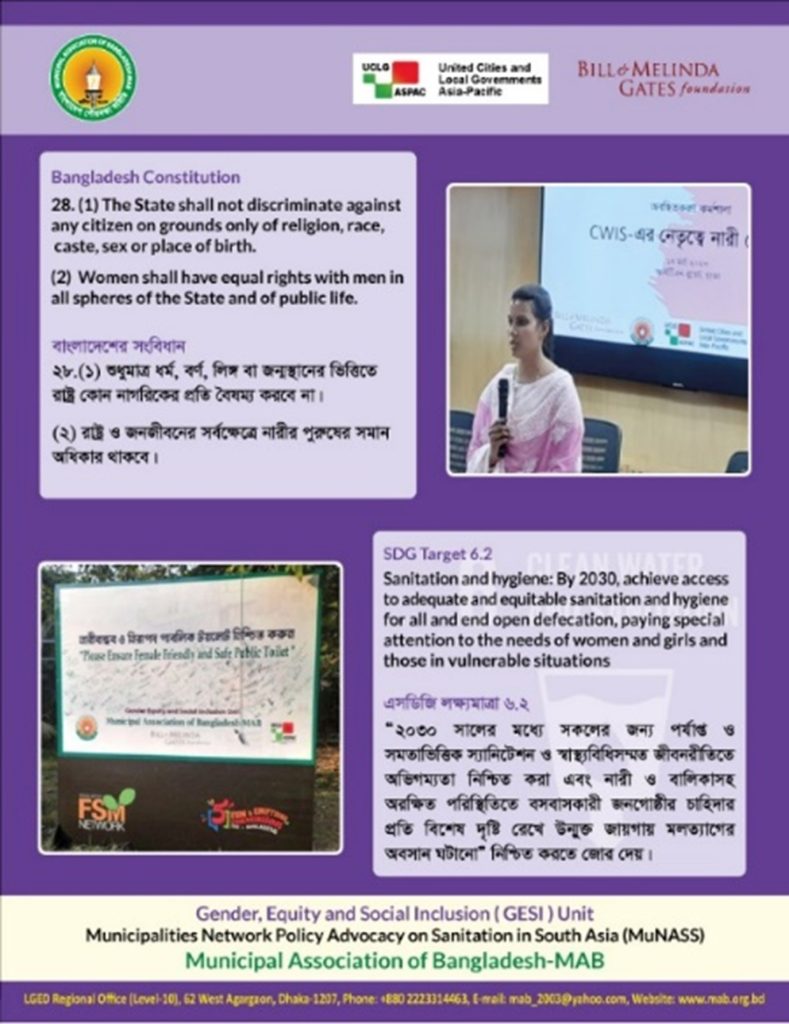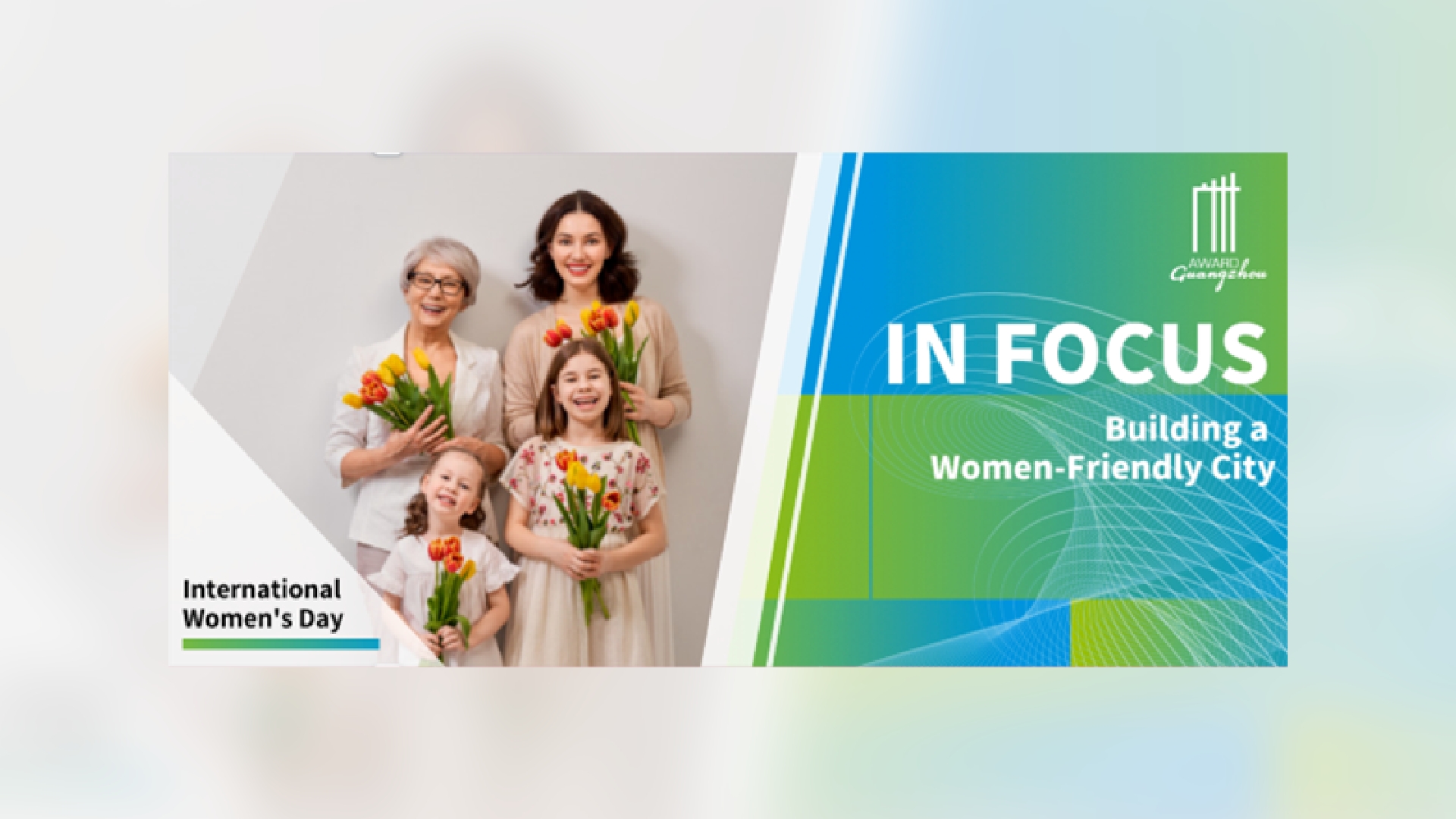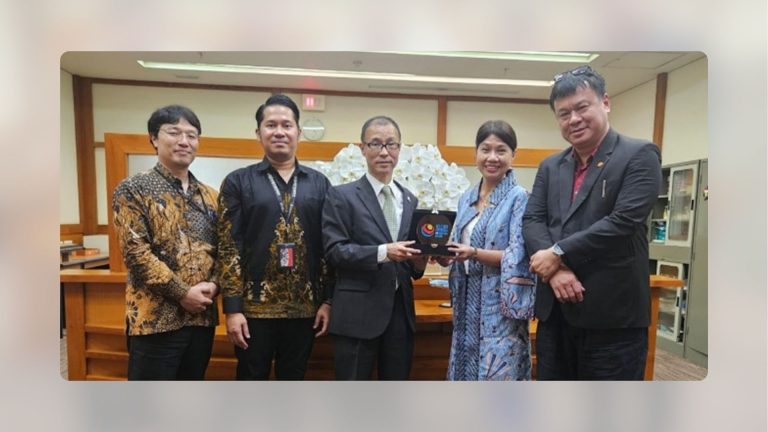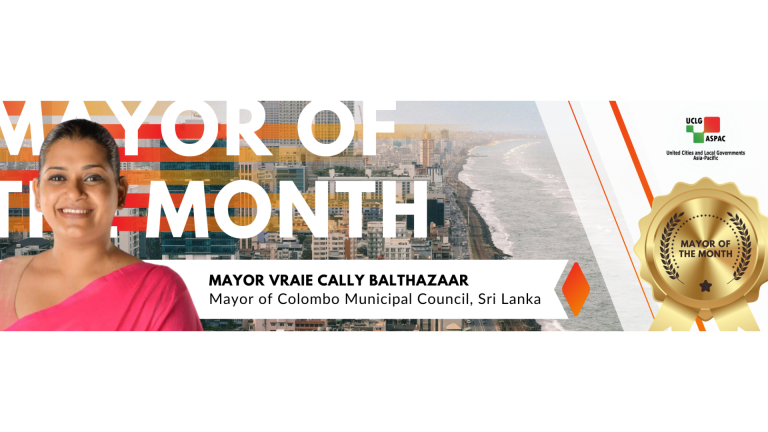March 8th is International Women’s Day. The development of women’s careers is an important force in promoting the progress of human civilisation. Respecting women and achieving gender equality is the common goal pursued by the international community and an important manifestation of a civilised society. The Guangzhou Award recognised five initiatives highlighting the topic of building a women-friendly city. Guangzhou plays a key role in promoting gender and supporting women’s and children’s friendly cities and environments in UCLG ASPAC. Guangzhou has been the Chair of the Standing Committee on Women in Local Government.
Bogotá, Colombia (Guangzhou Award Winning Initiative 2023)
Bogota Care Blocks – How a city is reorganising itself for women and achieving the SDGs
It has long been recognised that women’s “time poverty” is a structural cause of gender inequality. The unpaid burden of care falls disproportionately on women, which translates into women lacking economic autonomy. Women who are primary caregivers also tend to abandon higher education. They are prone to suffer from chronic mental and physical illnesses and have higher chances of experiencing gender-based violence. 30% of Bogotá’s female population does unpaid caregiving full-time; 91% of this population is low-income; and 33% is deprived of free time for self-care.
The initiative includes a cultural change strategy, a “Care School for Men” so that men can learn to recognise care, and distribute care more equitably within the household. As a result of this initiative, which provides childcare and a laundry service, caregivers have gained a total of 4 hours daily to study, generate income, or rest.
Pimpri Chinchwad, India (Guangzhou Award Shortlisted Initiative 2023)
Navi Disha: Community Toilet Model
The Indian city of Pimpri Chinchwad being a prominent industrial hub, hosts a significant number of migratory industrial labourers who have established residences in low-income settlement areas. The city has 160 Community Toilets that provide clean and hygienic sanitation facilities in these areas. Under the Navi Disha initiative, women from the targeted communities have formed groups that have taken responsibility for operating and maintaining the community toilets ensuring superior sanitation standards.
A round of discussions was conducted with the communities for conceiving the initiative. Women within these settlements came forward to take up the operation and maintenance of the community toilet in their area. Along with training in community toilet management, the municipality also makes a monthly payment to each women’s group to cover the cost of sanitation equipment and cleaning materials to generate revenue streams for the women’s groups.
The initiative is a good example of gender mainstreaming in the sanitation value chain along with effective public-community partnerships and agile administration. Over 400 women are now engaged within the initiative managing 40 toilets with total of 862 toilet seats. Over 30,000+ beneficiaries are getting access to clean and safe toilets every day.
The municipality aspires to introduce the women groups to alternative revenue streams, involving them in decision-making processes for future initiatives such as women-led sustainable Solid Waste Management and establishing robust feedback and monitoring mechanisms.
Tharaka Nithi, Kenya (Guangzhou Award Deserving Initiative 2023)
Enhancing Women’s Livelihoods Labor Force Participation Through the Crèche Programme
Women play an important role in household chores and childcare. In the Tarakanisi region, despite increasing employment among women, they continue to bear most household responsibilities. The time women spend caring for children and performing other domestic chores takes away time and opportunities they could use for other income-generating activities. Childcare is therefore largely considered a barrier to women’s participation in productive economic activities outside the home.
To handle this, the Tarakanisi County Government opened a nursery in Chuka Market in 2021. The goals of the crèche programme are to reduce the burden of childcare, ensure that their children are cared for while women are at work, promote the psychosocial well-being of nursing mothers, and promote children’s growth and development. With the assistance of Kenyatta University curriculum experts, the county government also passed a policy that allows the development of special education programmes for children under 5 years old.
In July 2023, the policy was submitted to the county council. Over the next five years, crèches are planned to be inaugurated in all market centers in Tarakanisi County to achieve the desired transformation.
Mezitli, Türkiye (Guangzhou Award Winning Initiative 2018)
Mezitli Women Producer’s Market
In Turkey, women are still one of the most vulnerable groups as they are often very much dependent on their families, and mostly on their male relatives or husbands. Therefore, the Women Producers Market is part of a general vision of Mezitli to be a women-friendly city and to encourage the local women to get more independent, thereby increasing their self-confidence.
In doing so, Mezitli has set up the first market that women producers completely run. The initiative is supportive for local small-scale production and helps to strengthen local women as sellers, by providing them space and support to sell their local products, to encourage them to be economical actively in society.
This initiative’s outcome is already clearly visible, as it has increased the local employment rate and provided women with a platform to develop their economic existence, highly promoting gender equality in the city. In addition, the small-scale local economy has profited from this initiative. This means a more environmentally friendly economy and sustainable trade have been established, giving the whole city and its citizens a better quality of life.
Santa Ana, Costa Rica (Guangzhou Award Shortlisted Initiative 2018)
Santa Ana en Cleta
To reduce the use of private vehicles and improve road safety, Santa Ana designed a more inclusive mobility structure for pedestrians and cyclists in 2016. Santa Ana en Cleta is a project dedicated to transforming the mobility and road culture of the city’s 57,000 inhabitants. The project also contributes towards the recovery of public spaces.
The project aims to improve the urban environment, well-being, health, the right to use the city safe, respectful, and sustainable way. It is focused on women, as women are the main agents of change in the communities. By teaching women how to ride a bike and how to use it as a means of transport, the project can promote the gradual inclusion of other population groups.
The project reverses the widespread perception that pedestrians and cyclists have fewer powers on the road and gives women more opportunities to use or allocate public space in the city.
MAB in Bangladesh Launched Poster on Marking International Women’s Day 2024

In a world facing multiple crises that are putting immense pressure on communities, achieving gender equality is more vital than ever. Ensuring women’s and girls’ rights across all aspects of life is the only way to secure prosperous and just economies, and a healthy planet for future generations. Visioning this goal, the Gender Equity and Social Inclusion Unit of Municipal Association of Bangladesh (MAB) has launched a poster emphasising the importance of gender equity through ensuring women’s health by establishing safe and women friendly public toilet not only in Bangladesh rather across the border. Gender Equity and Social Inclusion (GESI) is a sub-unit under the MAB Secretariat which aims to develop and demonstrate innovation on safely managed sanitation to achieve SDG 6.2 and mainstream into the regional agenda, paying special attention to the needs of women and girls and those in vulnerable situations. The unit consists of 25 members from different municipalities in Bangladesh which includes both female and male members. This GESI unit of MAB is running a nationwide signature and awareness campaign to achieve gender equity in urban sanitation which has been done under the framework of MuNASS funded by BMGF.











